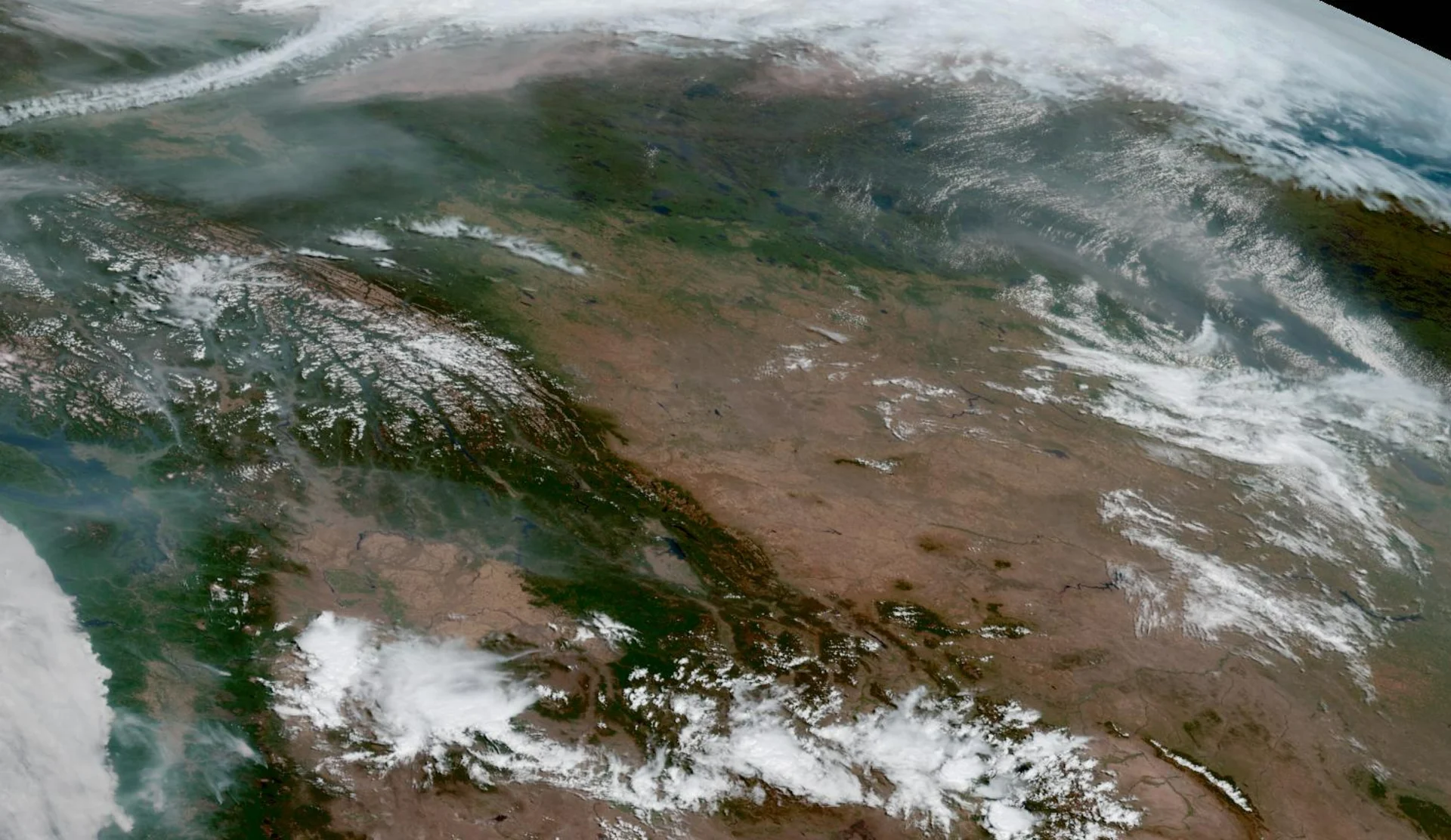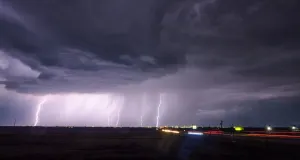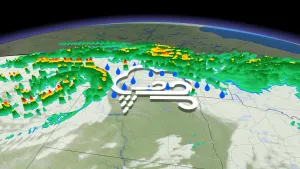
Early harvest another side effect of drought for many Alberta farmers
It's yet another symptom of the drought conditions plaguing Western Canada this year.
The harvest in south and central Alberta is progressing ahead of schedule, according to provincial data, with the crops having matured faster than usual in the hot, dry conditions.
It's not a great sign, says farmer Glen Gateman, who noted an early harvest typically translates to a smaller, poorer-quality crop.
"Generally, a bigger, heavier crop just takes longer to mature, to dry down," said Gateman, who farms near Mossleigh, Alta., and started harvesting a week or two ahead of schedule.
"The yields aren't as good, the quality's likely not as good, and obviously your income will be affected because of that."

Glen Gateman, who farms near Mossleigh, Alta., says his harvest started about one to two weeks ahead of schedule this year. He says harvest season has been trending earlier for about the last five years. (Submitted by Jodie Gateman)
The agricultural situation is generally worse the further south in the province you go, said Jesse Cole, a manager with the Agriculture Financial Services Corporation, in an email.
The north and Peace regions have just started to harvest, which is fairly typical for this time of year, he said. Central Alberta is progressing faster than usual, though southern Alberta is seeing the earliest harvest of all.
According to the province's latest crop report, a third of all major crops in the south region have been harvested, up from the five-year average of 19 per cent at this time of year.
Elsewhere in the Prairies, Saskatchewan is also harvesting ahead of schedule, while Manitoba's harvest is more or less in line with the five-year average, according to that province's crop report.
For some southern Alberta farmers, this year's drought comes on top of a years-long soil moisture deficit that's proving difficult to recover from, said Leigh Anderson, a senior economist with Farm Credit Canada.
"[For] some producers, this was their third or fourth or even more than that years of below-average moisture levels for their soil," said Anderson.
"In some cases, they didn't even get a crop."
Prices still strong
Still, prices for grains and oilseeds have remained strong, despite dipping slightly from highs seen last year, says Jon Driedger, vice-president of LeftField Commodity Research.
Driedger said high prices can offset some of the impact of a disappointing harvest, though this only applies to farmers who were able to generate at least some amount of crop.
"Those areas that have been really hammered in terms of really poor yields — that's difficult," said Driedger.
"At the end of the day, it doesn't matter what the price is, if you have hardly any crop to sell."
As for Gateman, he says higher-than-usual prices will mitigate some of the impact of this year's challenging season.
He's now finished harvesting peas and most of his barley, and is shifting his focus to wheat and canola. But as the season wraps up, he's once again praying for rain.
"[I] hope that somehow we can get some moisture this fall to start recharging our ground," he said.
"We've just got no carryover moisture, no reserve moisture at all."
This article, written by Paula Duhatschek, was originally published by CBC News on August 26, 2023.









